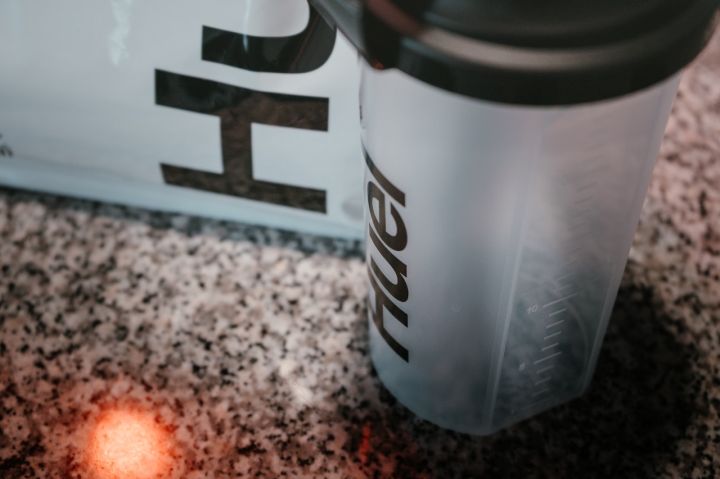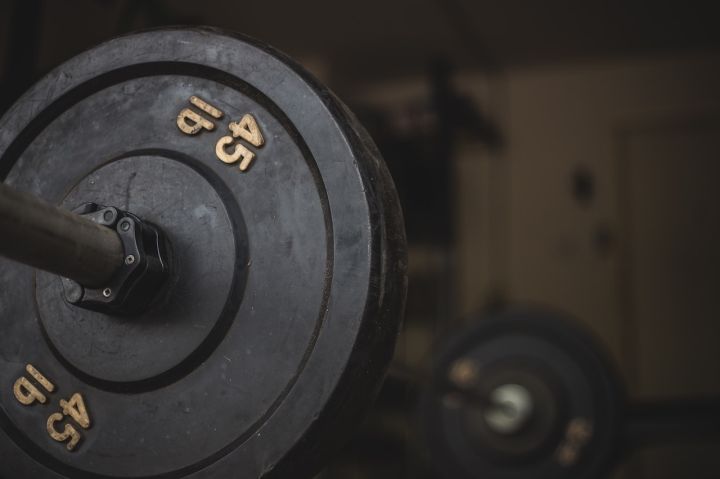If taken correctly, can l-carnitine boost your training and improve your physique? In the gym, this means more endurance and a greater sense of pump. In the mirror, imagine yourself with more muscle and less fat. No matter how much you know about l-carnitine, let's start with the fact that it is safe to use.

Don't be afraid of l-carnitine. Understanding how it works and how to use it will be a great 'tool' in your fitness routine.
What is l-carnitine?
Although it is often classified as an amino acid, l-carnitine is not strictly speaking an amino acid. It is considered to be a "Vitamin-like" And "Amino acid-like" Compound, related to the b vitamins. When it was first studied in the 1950s, l-carnitine was known as vitamin bt.

L-carnitine is formed in the liver and kidneys from lysine and methionine. However, it is stored in other parts of the body, mainly in the muscles (including the heart), the brain and even the sperm. In your daily diet, it comes mainly from meat and other animal products. You can get some from plant products like avocado and soya, but in general meat is the best source and the redder the better (all types of red meat).
There are two forms of carnitine: L-carnitine and l-carnitine. L-carnitine is a type of carnitine found in nature and is biologically active. On the label, you will see it listed as l-carnitine, l-carnitine tartrate, or propionyl l-carnitine. They are all similar and equally effective. L-carnitine, on the other hand, is biologically inactive and cannot be sold or used as a supplement.
Acetyl carnitine, also known as acetyl l-carnitine, is another popular form of l-carnitine supplement. It can be found throughout the central nervous system where it plays a role in the production of energy and the production of the important neurotransmitter acetylcholine.
The acetyl group linked to the carnitine molecule enhances the ability of carnitine to cross the blood-brain barrier into the brain, where it plays the role of a powerful antioxidant. Therefore, some studies suggest that acetyl l-carnitine may have a protective effect against the ageing process and neurodegeneration.
What does l-carnitine do?

L-carnitine helps to transport fats, especially long-chain fatty acids, into the mitochondria of the cell. Once there, the fatty acids are oxygenated and used as fuel to produce adenosine triphosphate. L-carnitine works on cells both when you are exercising and at rest, but studies have confirmed that it is particularly effective during strenuous exercise.

Without enough carnitine, most dietary fats cannot enter the mitochondria and be burned for fuel. But for people who are deficient in carnitine, this is a serious disease. It can lead to muscle weakness, stunted growth, an enlarged liver, and a number of other problems. That's why it's considered a "Conditionally necessary" Nutrient: Your body produces it, but if it doesn't produce enough, your health is seriously affected.
One study concluded that, in addition to delivering fat, l-carnitine also enhances the action of insulin on muscle cells. This means that it can help keep blood sugar levels low, even after a carbohydrate-rich meal, while also helping with glycogen replenishment. This is one of the reasons why many people recommend taking this supplement after a workout.
There are some of the most interesting studies on l-carnitine supplementation focusing on how it can improve athletic performance.
What are the properties and uses of l-carnitine?

The true role of l-carnitine as a fat burning supplement has been confirmed. It can help to limit fat gain and control weight. If you are losing weight, it can help you transfer fat into your cells to be burned as energy.
Burning fat as fuel: Some of the most interesting recent research on l-carnitine supplementation has focused on how it can improve athletic performance. In one study, researchers at the university of nottingham medical school had one group of athletes eat 2 grams of l-carnitine and 80 grams of high glycemic carbohydrates every morning for 24 weeks. The other group consumed only carbohydrates.
The researchers found that during low-intensity training, the subjects taking l-carnitine consumed 55% less muscle glycogen, while the body's ability to burn fat increased by 55%. During high-intensity training, subjects taking l-carnitine had lower levels of lactate and higher levels of creatine phosphate, one of the main components of atp.

Fatigue resistance: When researchers at the university of nottingham measured the subjects' ability to resist fatigue in a test, they found that subjects taking the supplements could walk 25% more. This may be because they burned more fat while retaining muscle glycogen, in addition to having lower levels of lactate and higher levels of creatine phosphate.
Reduced muscle soreness and improved recovery: In some studies on humans, doses of l-carnitine of only 1-2 grams per day have been shown to significantly reduce muscle damage from strenuous exercise and improve recovery after exercise. 3-6 grams it has also been shown to reduce muscle soreness.
What is the most important thing? The people doing these tests are not rats, they are healthy, active men and women.
Better blood flow and pumping sensation: The effectiveness of this supplement comes not only from its ability to increase fat burning and reduce glycogen depletion, but also from its ability to boost blood flow to the muscles. Increased blood flow means that more nutrients and hormones are released during exercise to where they are needed most.

How does this work? Firstly, l-carnitine reduces oxidative damage to nitric oxide in the body. But it also enhances the activity of a key enzyme that is involved in the body's production of nitric oxide. The end result is higher nitric oxide blood levels, which not only enhances energy during workouts, but also promotes post-workout muscle recovery.
Are there any side effects of l-carnitine supplementation?

In reasonable doses, this supplement has few side effects. High doses can cause nausea, abdominal cramps, vomiting and diarrhoea. Rare side effects include muscle weakness in patients with uremia and seizures in patients with epilepsy.
So just make sure you take a normal dosage.
How do i use l-carnitine?
Quite simply, take it with carbohydrates.

Some early studies showed no benefit from l-carnitine as they did not adequately increase muscle carnitine levels. This was because the supplements were not taken at the correct time and insulin would be increased and muscle uptake would be adequate.
Recent studies have shown that insulin levels must be quite high after sufficient amounts of l-carnitine have entered the muscle cells, which is where l-carnitine does most of its work. On the other hand, taking l-carnitine enhances the effect of insulin on muscle cells, helping to deliver more glucose and l-carnitine to muscle cells.
Although only 1 gram of l-carnitine is effective, you should ideally take 2-3 grams per dose for best results, along with at least 30-40 grams of carbohydrates and 20-40 grams of protein, preferably with meals. This applies if you are taking pure l-carnitine, l-carnitine tartrate, or propionyl l-carnitine.
However, in the absence of food, acetyl l-carnitine is more readily absorbed by the intestinal tract and muscle cells, not to mention the brain. Therefore, this form of carnitine may be stacked with other ingredients that burn fat, such as caffeine and green tea, and taken between meals.
Should i use l-carnitine?

At this point in time, it does not seem necessary to cycle l-carnitine. If taken daily, it will be effective in the long term.
When should i take l-carnitine?
One of the best times to take l-carnitine is after exercise, but you can take it with any other high-carb, high-protein diet during the day. If you want to take l-carnitine with other fat burning ingredients in between meals, consider using acetyl l-carnitine.

One way we have found to lose weight and improve exercise performance is to take 2-3 doses of acetyl l-carnitine and other fat burning ingredients with nothing between meals and l-carnitine or tartrate + l-carnitine with the meal after exercise.
You can take it with any other high-carb, high-protein food.

Supplements like l-carnitine can help improve body composition, but to see significant results you need to work with your diet and training program to achieve results.





